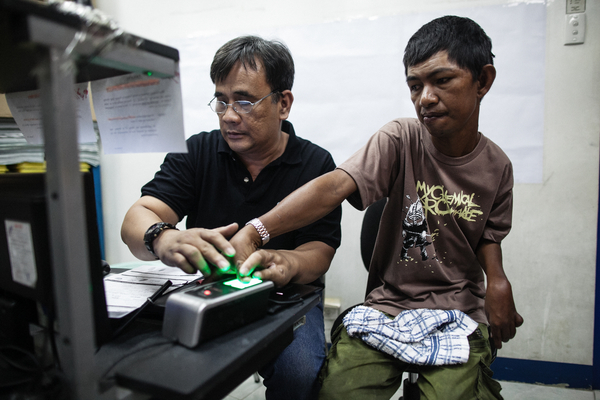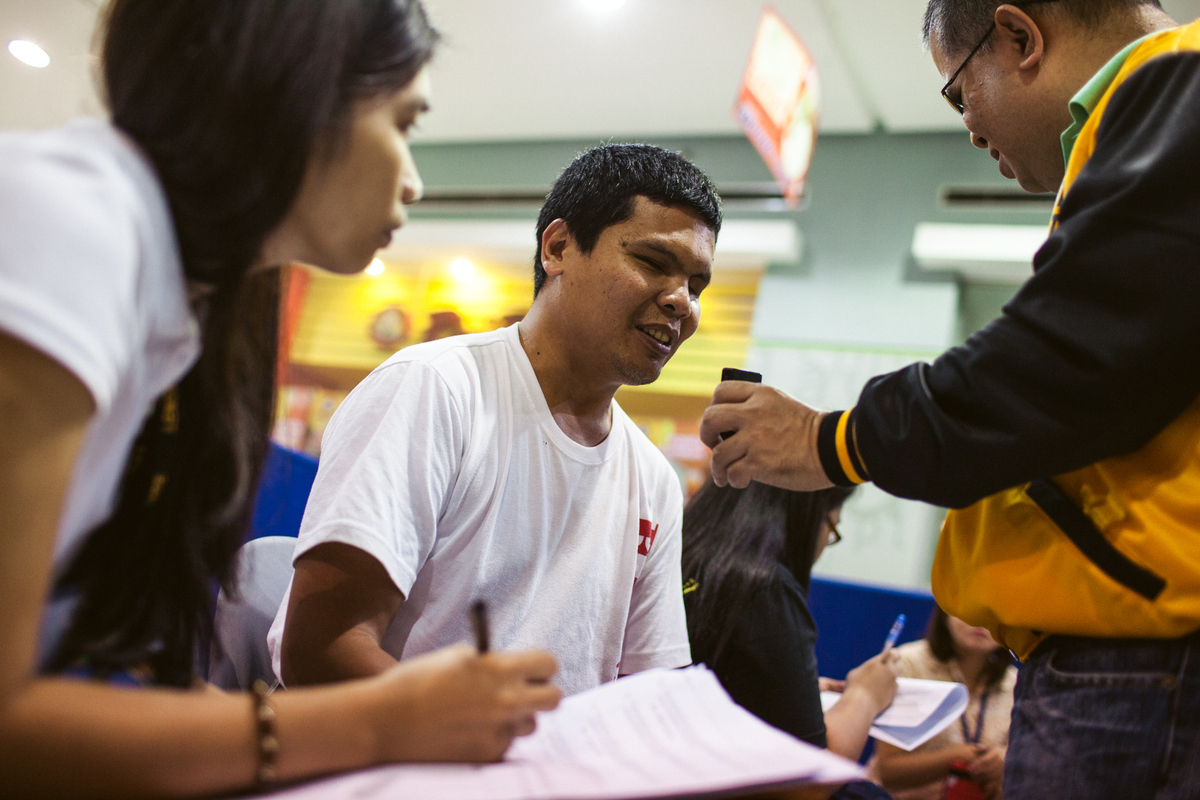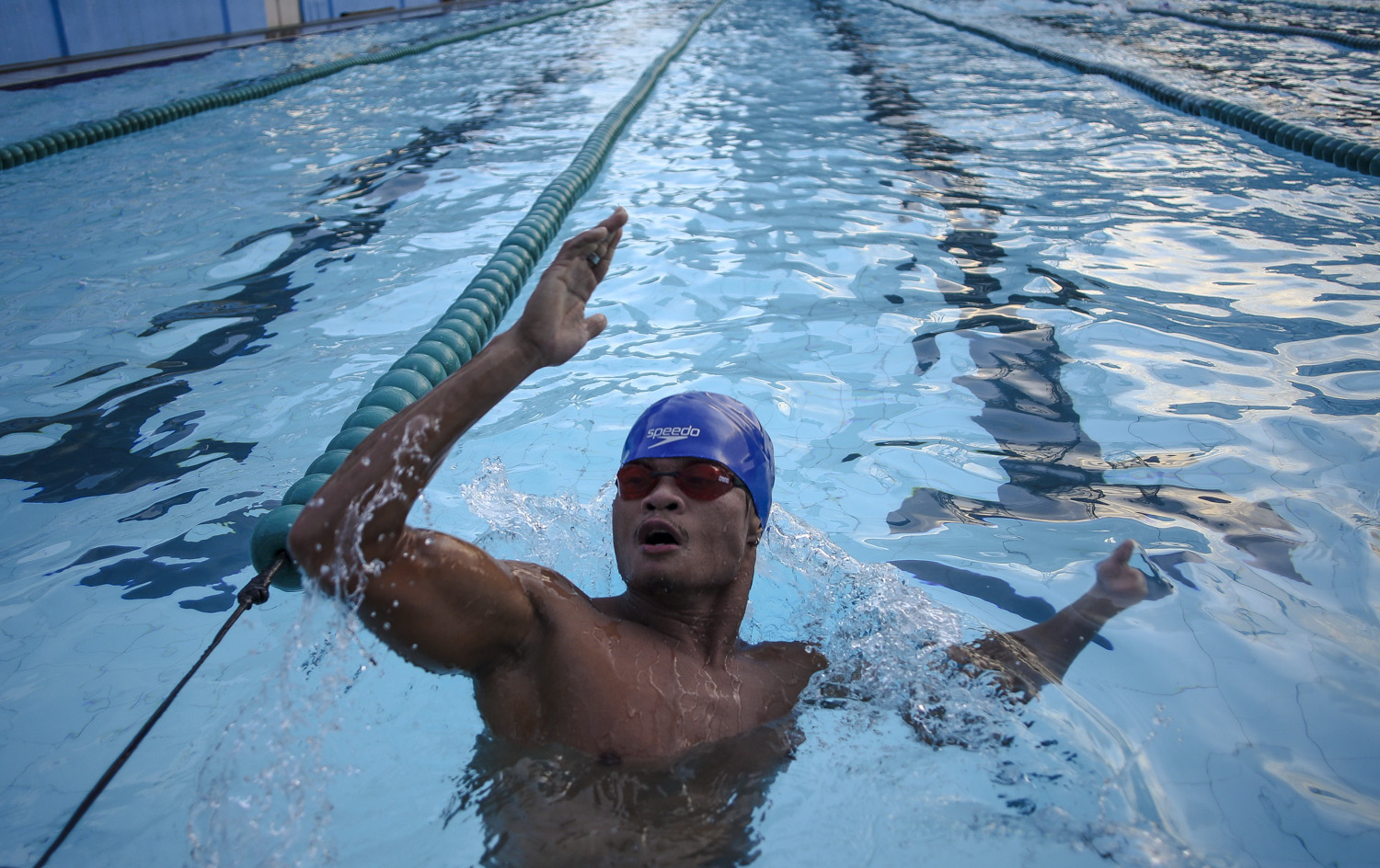
By DARLENE CAY
OVER 54 million Filipinos will be electing barangay officials on Monday, but in special polling precincts for persons with disabilities, only 10 will be able to cast their votes.
The Commission on Elections has assigned four SM malls nationwide as pilot accessible polling places for PWDs and senior citizens.
Calling this exercise as an “experiment,” Commissioner Grace Padaca says the APPs for Monday will set the tone for efforts to prepare for the full implementation of the poll accessibility law, Republic Act 10366, in the 2016 elections.
Under Comelec Resolution 9797, the poll body approved the creation of APPs in four SM malls. The polling places will be at the ground floor and voting time will be from 7 a.m. to 1 p.m.
For PWDs and senior citizens to vote in the APPs, the law requires PWDs to give their consent to be transferred from their regular precincts. Of the 229 voters who agreed to vote in the APPs, only four PWDs will be voting in SM Cebu, three in SM General Santos, three in SM Lipa, and zero in SM Manila.
The rest of the voters are senior citizens.
“So dito, ang nangyari tuloy sa amin, mas marami ang senior citizens at napakakaunti ng PWD [naboboto] because they made a choice. At least we gave them the choice (What happened was there are more senior citizens than PWDs who will be voting),” Padaca told VERA Files.
Padaca said registered PWDs and senior citizens who reside “near the APPs” were identified and local election officials went to each of the voters’ homes to get consent.
Election officers in Lipa and Manila confirmed that only one barangay in each APP area was chosen. In that barangay, Comelec chose one school, a regular polling place, and identified who are the PWDs there.
In Lipa, election officer Atty. Candy Orense said of the seven PWD voters in Barangay Sabang, only three agreed to go to the APP. “Their regular precinct, G.B Lontok Elementary School, was nearer to their area than SM Lipa so they chose to go to the school,” she explained.
Padaca said this was a major setback.
“Among the problems that arose was that PWDs chose to vote in the regular polling places because these are more accessible,” Padaca said. “There is no point in giving them an opportunity to go to an accessible polling place if their regular precinct is nearer.”
In a September 25 meeting with Padaca, representatives of Disabled People’s Organizations expressed their apprehension over the creation of APPs in malls precisely because of this reason.
They told her it would be better for the Comelec to make the regular polling places accessible, instead of creating special polling places that PWDs cannot go to.
Padaca told VERA Files that the main consideration for the selection of the APPs is the malls’ proximity to residential areas.
Comelec partnered with SM Supermalls because the company has worked with the electoral body on other projects for PWDs, she said. In the 2013 elections, for example, registration for PWDs took place in SM malls nationwide.
Of the P400,000 budget used for the APPs, Padaca claimed not one cent went to SM. The money was spent for election officers’ coordination, fieldwork, and consultations with voters.
But this exercise failed to work in Manila. None of the PWDs in Barangay 659, for instance, were able to give their consent because election officers had trouble locating who on the list are PWDs.
The registration records had no checkmarks if the voter is with disability, said Narciso Rabe, election officer of the 5th district of Manila.
“If we look at the records, only few PWDs are registered,” said Padaca. “We really need to strengthen our campaign for the PWDs to update their registration, to tell the Commission that they have disabilities. Otherwise, we will not know where to put accessible polling places.”
According to Comelec, there are 79,233 new PWD voters as of the last Election Registration Board meeting on August 12. These are the ones who updated their records when Comelec started using the supplemental forms where PWDs indicate their disability and assistance needed.
On Monday, all regular polling places are required by law to provide express lanes for PWDs and senior citizens and to assign rooms for them at the ground floor of schools.
Last May elections, Comelec designated only two polling places for PWDs. Despite the law letting PWDs vote at ground floors, many had to go up a flight of stairs, including Niño Aguirre, a voter with an orthopaedic impairment.
President Benigno Aquino III in his recent State of the Nation Address praised Aguirre for climbing up to his precinct on the fourth floor to vote. He thanked Aguirre for contributing to “true social transformation.” – With reports from Avigail Olarte




